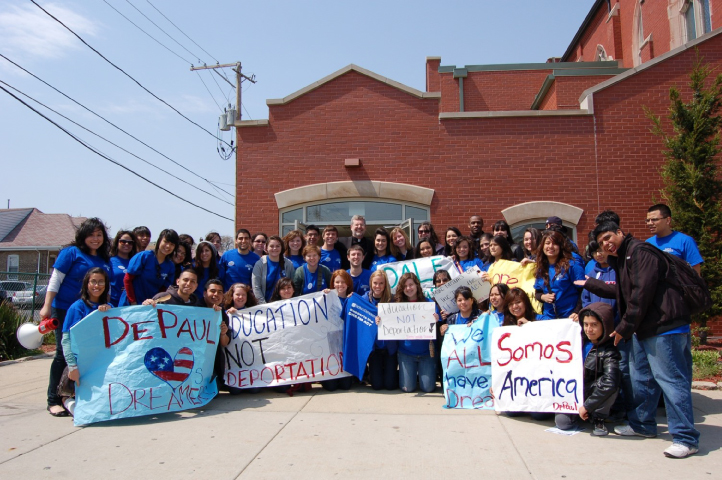
DePaul Loves DREAMers
DePaul University takes a strong and public stance in support of undocumented students in line with its core values and traditions as a Catholic, Vincentian, and urban university. The Office of the General Counsel participates in the University's DREAM Working Group, a standing committee dedicated to exploring opportunities to nuture DePaul's undocumented student population. We further partner with the Office for Institutional Diversity and Equity to offer routine training sessions to DePaul faculty and staff on serving undocumented students.
DREAM Resource Guide
DePaul's Office for Institutional Diversity and Equity has compiled a site of resources dedicated to providing information for current and prospective undocumented students about financial aid options, admissions, and the offices available at DePaul to support them. The information gathered here is also intended to serve as a helpful guide for faculty and staff interested in learning more about serving the needs of undocumented students, and the university’s commitment to a creating a supportive environment for all students here at DePaul.
The Dream Resource Guide and related materials are available by clicking
here.
Undocumented (a short film)
This powerful piece explores the case of a typical undocumented student at DePaul and how immigration status affects one's individual rights to meet the basic needs of human life. This personal story puts a face on those who are undocumented and shares the unique challenges they confront on a daily basis.
Produced by: DePaul University Jarvis College of Computing and Digital Media School of Cinematic Arts
Did you know that DePaul's University Catalog features a statement in support of DREAMers?
Check it out!
DePaul proudly joined an Amicus Brief prepared by educators and children's advocates in support of the Federal government's position in a recent US Supreme Court case, US v. Texas.
Learn More